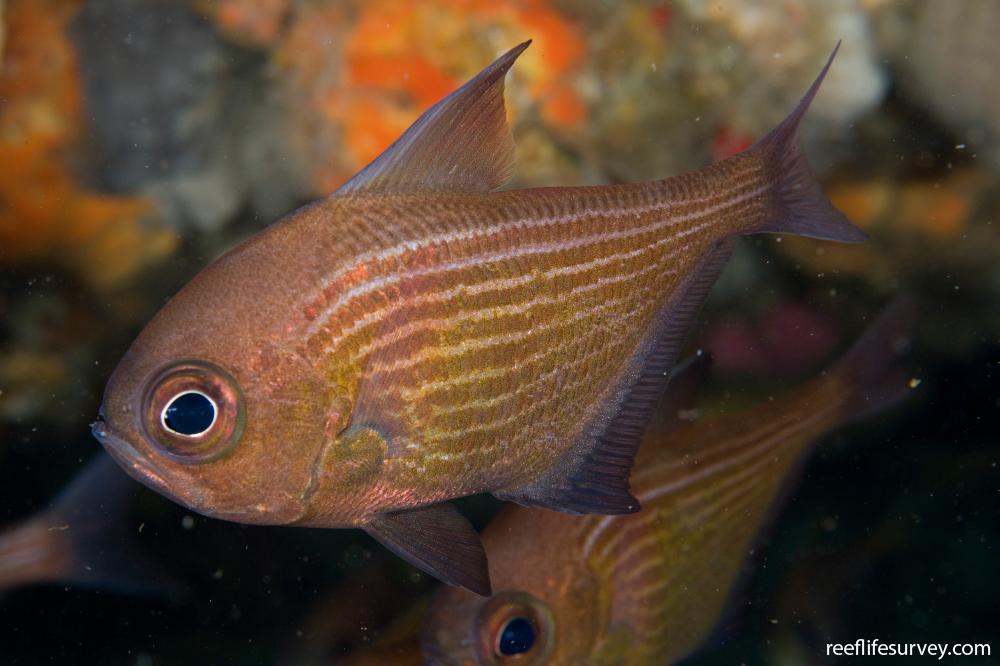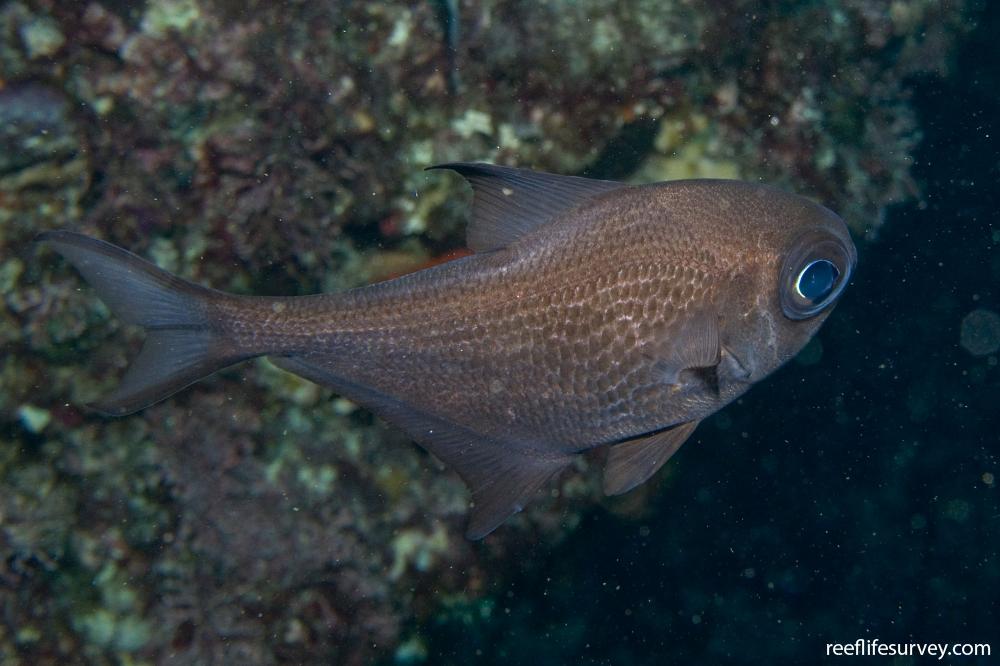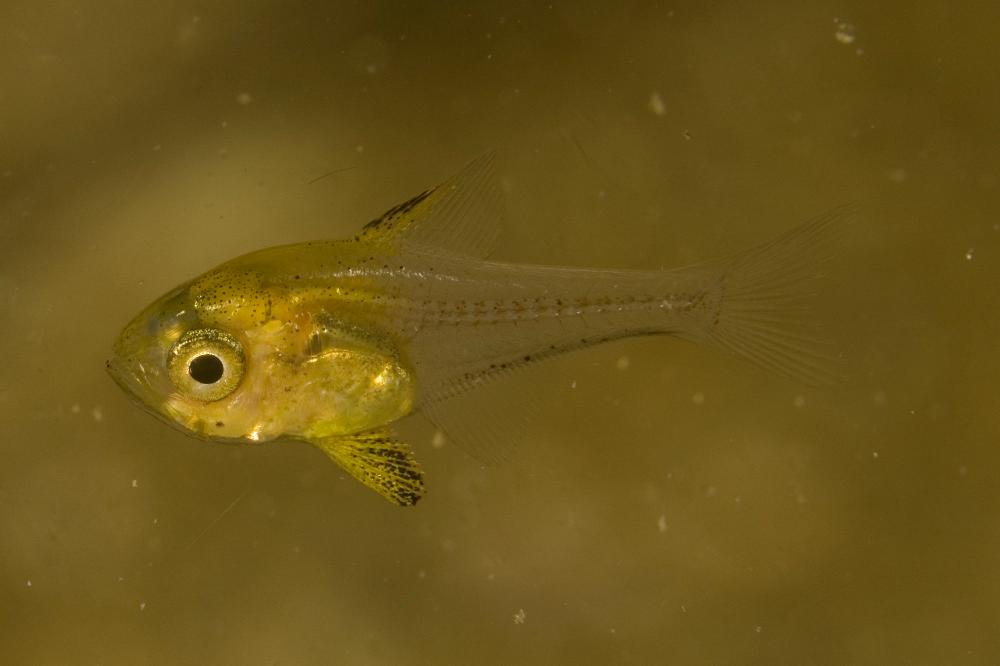Pempheris multiradiata
Common bullseyeSimilar Species
Same Genus
Distribution
Temperate Australasia
Description
One of the most widespread and abundant fishes on southern Australian reefs. Juveniles generally live at the entrance to caves near the sand edge in shallow water, where they can be recognised by distinctive yellow pelvic fins with black tips. Adults occur in smaller groups on deeper reefs and have nine to eleven rows of bronze-coloured scales. Juveniles can easily be confused with Pempheris affinis. Separate by the presence of adults and observation within the recorded range.
Information
Max Size: 28 cm
Sea Temperature Range: 10.5-23.2°C
Depth: 0-30m
Habitat Generalization Index: 16.04
Also referred to as the SGI (Species Generalisation Index), this describes the habitat niche breadth of the species. Species with values less than 15 are found in a relatively narrow range of reef habitat types (specialists), while those over 25 may be found on most hard substrates within their range (generalists). Learn more here.
Conservation and Rarity
IUCN Status: Not Evaluated
Occurrence: Common (44.8% of sites)
Occurrence describes how often the species is found on surveys within its distribution. It is calculated as the % of reef sites surveyed by RLS divers across all the ecoregions in which the species has been observed
Abundance: Many (19 per transect)
Abundance is calculated as the average number of individuals recorded per RLS transect, where present.
Edit by: Andrew Green






























